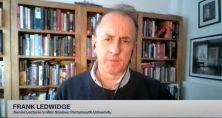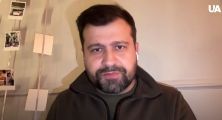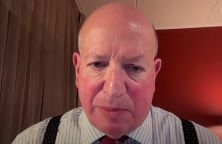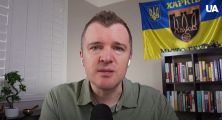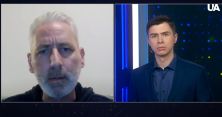The head of Estonia’s KAPO foreign intelligence agency, Kaupo Rosin, believes the indecision of NATO member states encourages Russia to further escalate relations with the West.
He spoke on the air of DW’s Conflict Zone, Ukrinform reports.
According to the head of Estonian intelligence, Russian dictator Vladimir Putin doubts that Moscow is currently prepared for a direct military standoff with NATO. However, Rosin believes that Russia can unleash a global armed conflict if Putin sees that he can come out of the war unscathed, getting away with the act of aggression.
As indicated in an intelligence report published in February 2024, Moscow is preparing for a military confrontation with the West, which could erupt within the next decade.
Rosin believes a number of factors must be taken into account in this regard. “The first big question is how does the conflict in Ukraine end, and that will determine the future path of Russia, who is the aggressor in this case. If we have a situation after the Ukraine-Russia war where Russia emerges as a victorious, very self-confident power, it will make all calculations based on that new situation,” the head of Estonian intelligence is confident.
Therefore, Rosin believes, the West should be interested in Russia coming out of the war against Ukraine as a weakened state with a lot of domestic problems. “I think Putin would not survive Russian defeat,” Rosin emphasized.
The second determining factor is how long it will take the Russians to rebuild or create renewed armed forces. It has to be kept in mind that the Russian armed forces today are several hundred thousand soldiers larger than before the start of the large-scale invasion, Rosin recalled, adding that Moscow is also expanding the production of ammunition and modern weapons, some of which have not yet been employed in the war. However, he is sure that Russia would not be able maintain the rate of generating manpower and equipment for its war of attrition for years.
Rosin also confirmed that Moscow has long been orchestrating acts of sabotage not only in Estonia, but also in other European countries. According to the intelligence chief, such actions on Russia’s part are aimed at creating tension in Estonia, and designed to undermine support for Ukraine. This is done so that Western democracies are more focused on domestic problems and less on supporting Ukraine, he emphasized. At the same time, according to Rosin, Russia expects NATO will not see those hybrid attacks as a pretext for invoking Article 5 of the Alliance’s charter, according to which an attack on one NATO member state is seen as one on all Allies, thus resulting in a response from all member states.
Rosin shares the position of Estonian President Alar Karis, who sharply criticizes the Allies for holding Ukraine back from striking deep into Russian territory, allegedly due to fears of escalation.
According to the head of intelligence, throughout the war in Ukraine, Moscow has been installed several paradigms into the minds of Western politicians. “The first is that the conflict should take place only on the territory of the victim, and the aggressor, for whatever reason, should remain untouched,” he noted. “This is the first time in military history.”
Another idea is that Russia supposedly cannot lose. “It’s not correct: Russia has lost several wars throughout the history,” Rosin reminded.
He also believes that Russian politicians and propagandists are deliberately trying to sow fear and indecision in NATO countries. At the same time, the visible weakness of the West is an invitation to further escalation from the Russian side, Rosin stressed. In his understanding, the task of the countries on NATO’s eastern flank is to continue explaining this to their Western allies.
Rosin also disagrees with the opinion of some Western politicians who express a desire to quickly reach a diplomatic solution to the military conflict in Ukraine and a compromise with Russia, and believe that a reset of relations with Moscow is likely or even imminent. “I am convinced that the current Russian regime must be defeated strategically. Because, even if Putin is partially successful in his objectives, we assess that he will continue. So the war in Ukraine will not be over in mid-term, even if we have a frozen conflict or something alike at some point,” the head of Estonian intelligence believes.
According to him, in the war of attrition going on in Ukraine, the side with more will and resources will eventually win. It is obvious that Ukraine needs additional weapons and ammunition. Therefore, NATO should not in any way restrain itself from supporting Ukraine with any types of weapons or ammunition that they need, Rosin said.
Speaking about a long-term solution to the conflict, the intelligence chief sees no other option than ensuring that the Ukrainians win at the end, adding that it is “doable, actually”.
Earlier, in June, Estonia announced a new package of military assistance to Ukraine, which includes short-range air defense systems along with munitions to them.
Read also: Europe should be ready for military standoff with Russia in six to eight years – MEPs





